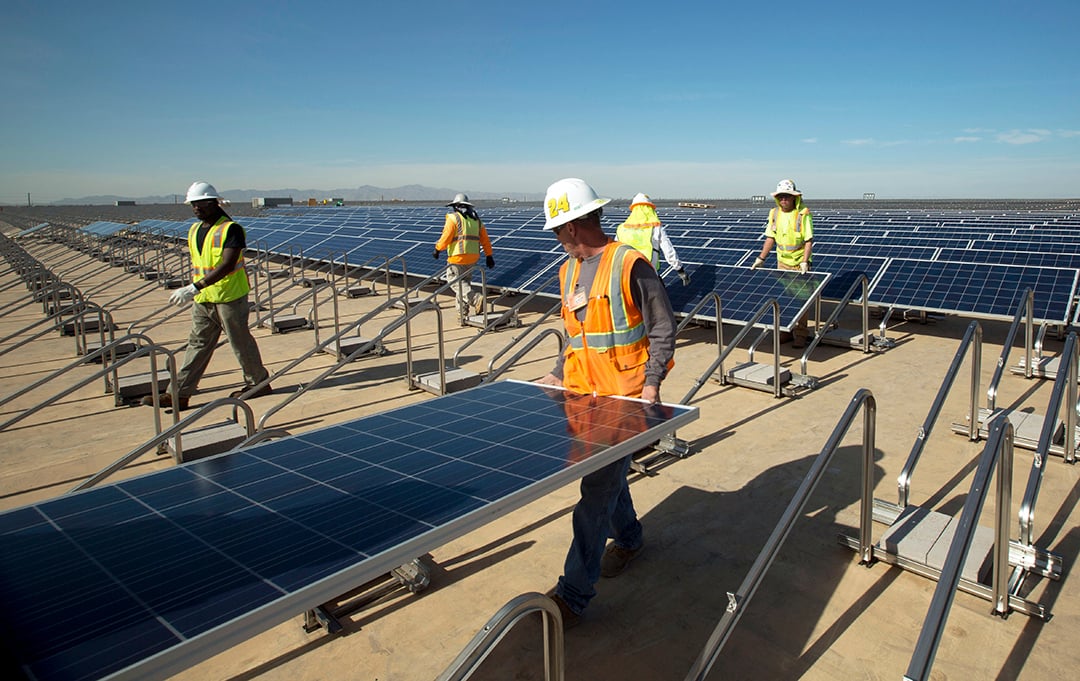The Full Guide to Solar Power Installation: Conserve Cash and Go Eco-friendly
Exploring the nuances of solar energy installment reveals a complex approach to both price savings and ecological responsibility. House owners are increasingly considering solar energy not only as a feasible option however as a tactical financial investment that can yield significant long-term advantages. Nevertheless, the process involves mindful factor to consider of different factors, consisting of system selection and installment procedures. Comprehending these components is critical for making best use of performance and cost savings. What certain actions should one take to guarantee a successful shift to solar power, and just how can economic motivations further improve this undertaking?
Benefits of Solar Power
The growing adoption of solar power mirrors a significant change toward sustainability and ecological responsibility. One of the main benefits of solar power is its capability to decrease dependence on nonrenewable fuel sources, causing decreased greenhouse gas discharges. By harnessing the sun's power, individuals and organizations can contribute to a cleaner setting and alleviate the unfavorable effects of climate change.
Moreover, solar power can bring about significant financial savings. Once set up, photovoltaic panels dramatically lower power bills, as they create power from a renewable source. Many federal governments likewise offer incentives, refunds, and tax obligation credits to motivate solar fostering, better enhancing economic practicality.
An additional noteworthy benefit is energy independence. Solar energy systems enable home owners and companies to generate their very own electricity, decreasing susceptability to rising and fall energy costs and supply disruptions. In addition, solar energy systems call for very little maintenance, translating to lower lasting operational costs.
Selecting the Right Solar System

Solar systems differ significantly in price depending on their kind, size, and effectiveness. Take into consideration prospective funding options such as lendings, leases, or power purchase agreements (PPAs) that may ease ahead of time prices.
Available area is an additional crucial variable. Analyze your roofing's positioning, angle, and shading, as these elements can impact solar panel efficiency. If roofing area is limited or unsuitable, ground-mounted systems may be a viable alternative.
It's vital to perform extensive study to understand the specific incentives readily available in your area, as they can vary extensively. Consulting with a solar setup expert can aid you navigate these choices successfully, ensuring you maximize your savings while adding to an extra sustainable power future.
Keeping Your Solar System
Reliable upkeep is vital for guaranteeing the longevity and ideal performance of your solar power system. Routine upkeep can aid prevent minor issues from escalating right into expensive repair services and make sure optimal energy efficiency.
Beginning with regular evaluations see this here of your photovoltaic panels, preferably every 6 months. Try to find dirt, debris, or any kind of indications of wear and tear. best solar energy company in fort lauderdale. Cleaning up the panels, particularly in areas susceptible to dust or bird droppings, can considerably enhance energy production. Use a soft brush and light detergent to avoid harming the surface area.
Following, keep an eye on the inverter. This component transforms solar energy into reference usable electrical energy and should be examined monthly. A lot of modern-day inverters have monitoring systems that signal you to efficiency issues, allowing for timely treatment.
Additionally, check the wiring and links for any kind of signs of deterioration or damages, as these can lead to reduced effectiveness or system failure. Think about professional upkeep solutions every year for a thorough examination.
Conclusion
To conclude, the adoption of solar energy provides significant benefits, including lowered electrical energy costs and a positive ecological impact. Careful consideration in picking the proper solar system, combined with a clear understanding of the installment process, improves the total experience. Financial rewards and normal upkeep further contribute to the long-lasting benefits of solar energy. Eventually, accepting solar innovation stands for a vital step towards sustainability and energy freedom, promoting a greener future for all.